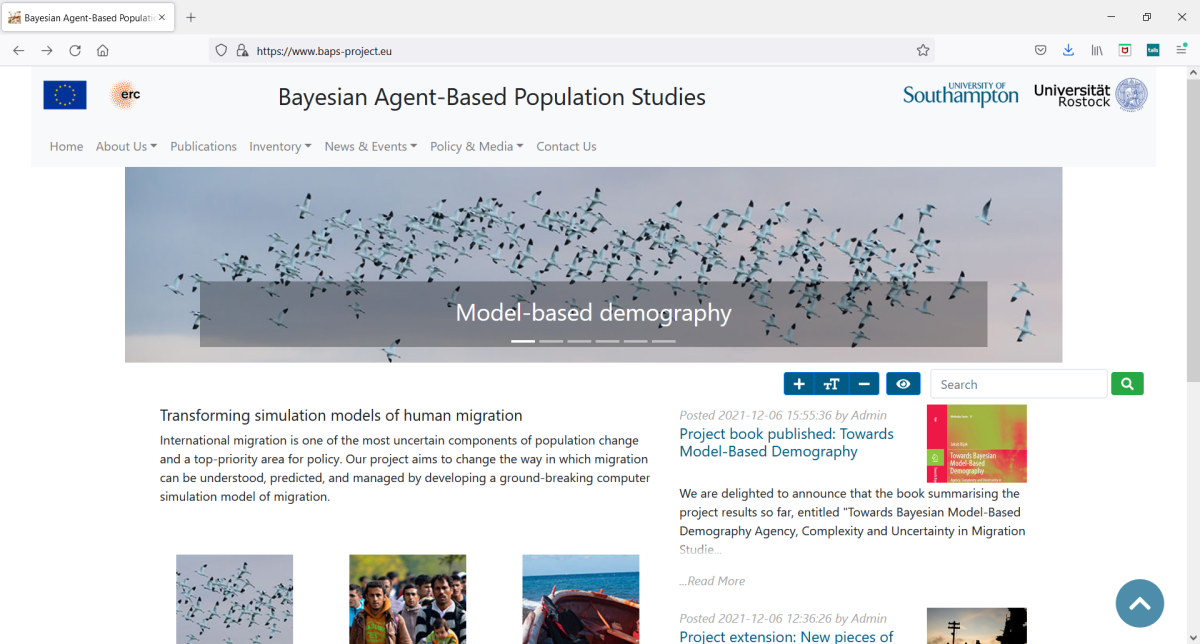Library
Bayesian Agent-Based Population Studies
International migration is one of the most uncertain components of population change and a top-priority area for policy. The aim of this project is to develop a ground-breaking, interdisciplinary simulation model of international migration, based on a population of intelligent, cognitive agents, their social networks and institutions, all interacting with one another. We want to change the way in which migration can be understood, predicted, and managed by effectively integrating behavioural and social theory with modelling.
To develop micro-foundations for migration studies, model design follows the state-of-the-art developments in demography, statistics, cognitive psychology and computer science. will also offer a pioneering environment for applying the findings in practice through a dedicated modelling language. Bayesian statistical principles are used to design innovative computer experiments and learn about modelling the simulated individuals, as well as the way they make decisions.
In the project, we collate available information for migration models; build and test the simulations by applying experimental design principles to enhance our knowledge of migration processes; collect information on the underpinning decision-making mechanisms through psychological experiments; and design software for implementing Bayesian agent-based models in practice. The project uses various information sources to build models bottom-up, filling an important epistemological gap in migration studies.
The summary of key project findings can be found in an open access book: Bijak J et al. (2021), Towards Bayesian Model-Based Demography. Agency, Complexity and Uncertainty in Migration Studies, Springer: Cham.
